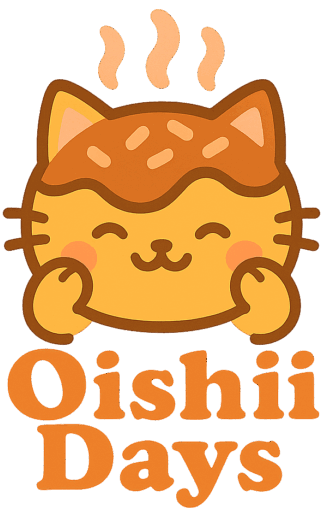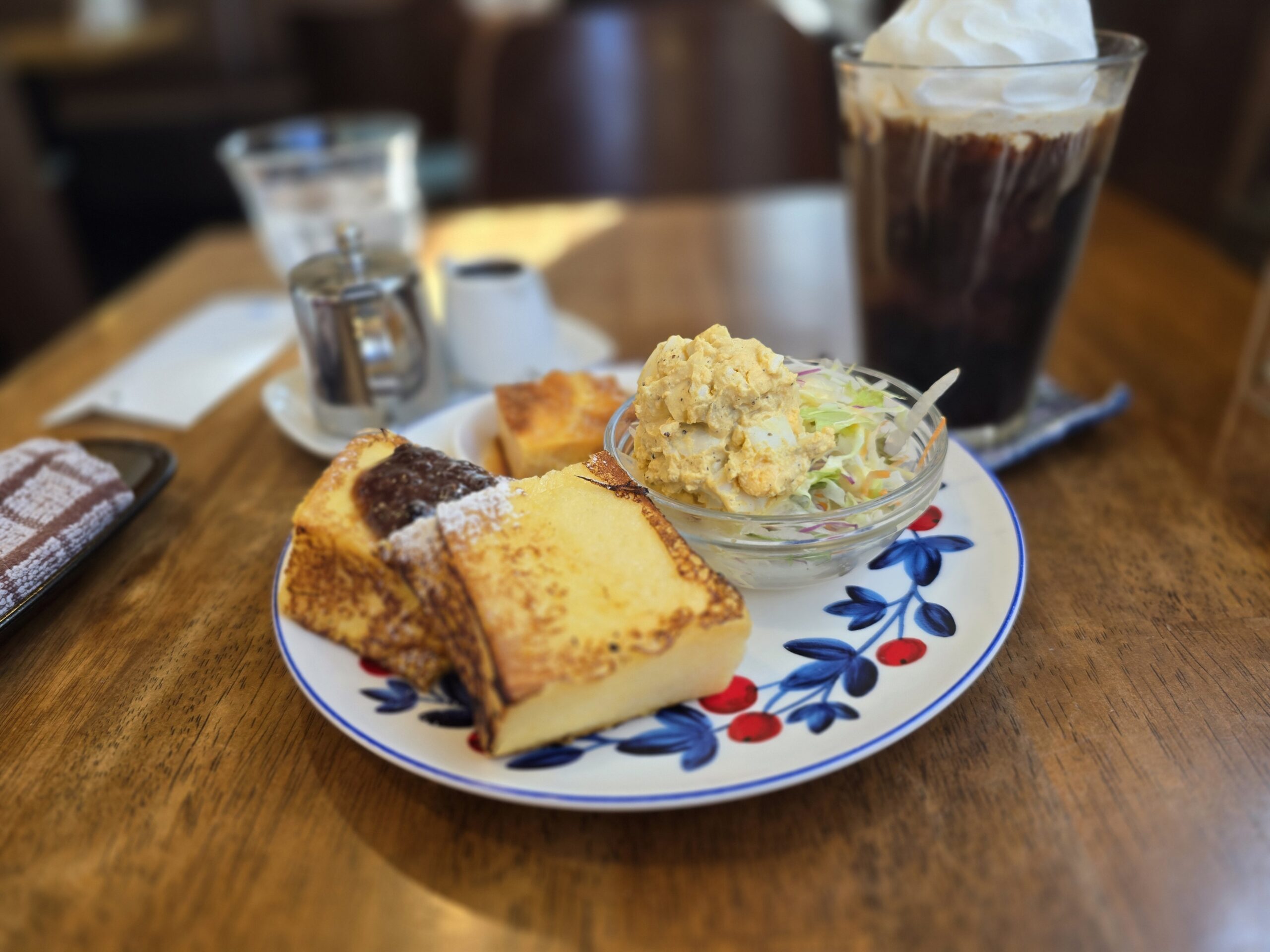On my days off, there’s nothing I love more than slipping out early to grab a coffee and a morning set at a local café in Gifu. There’s something deeply satisfying about sitting in a quiet corner with the sun just waking up, sipping coffee, and nibbling toast or simple dishes. It’s one of the small rituals I associate with life here—part local, part cozy indulgence.
In Gifu (and much of the Tokai / Chubu region), the “morning set” (モーニングサービス or モーニングセット) is more than just a breakfast menu—it’s a cultural institution. It blends daily routine with community time, gives cafés character, and offers an affordable way to start the day.
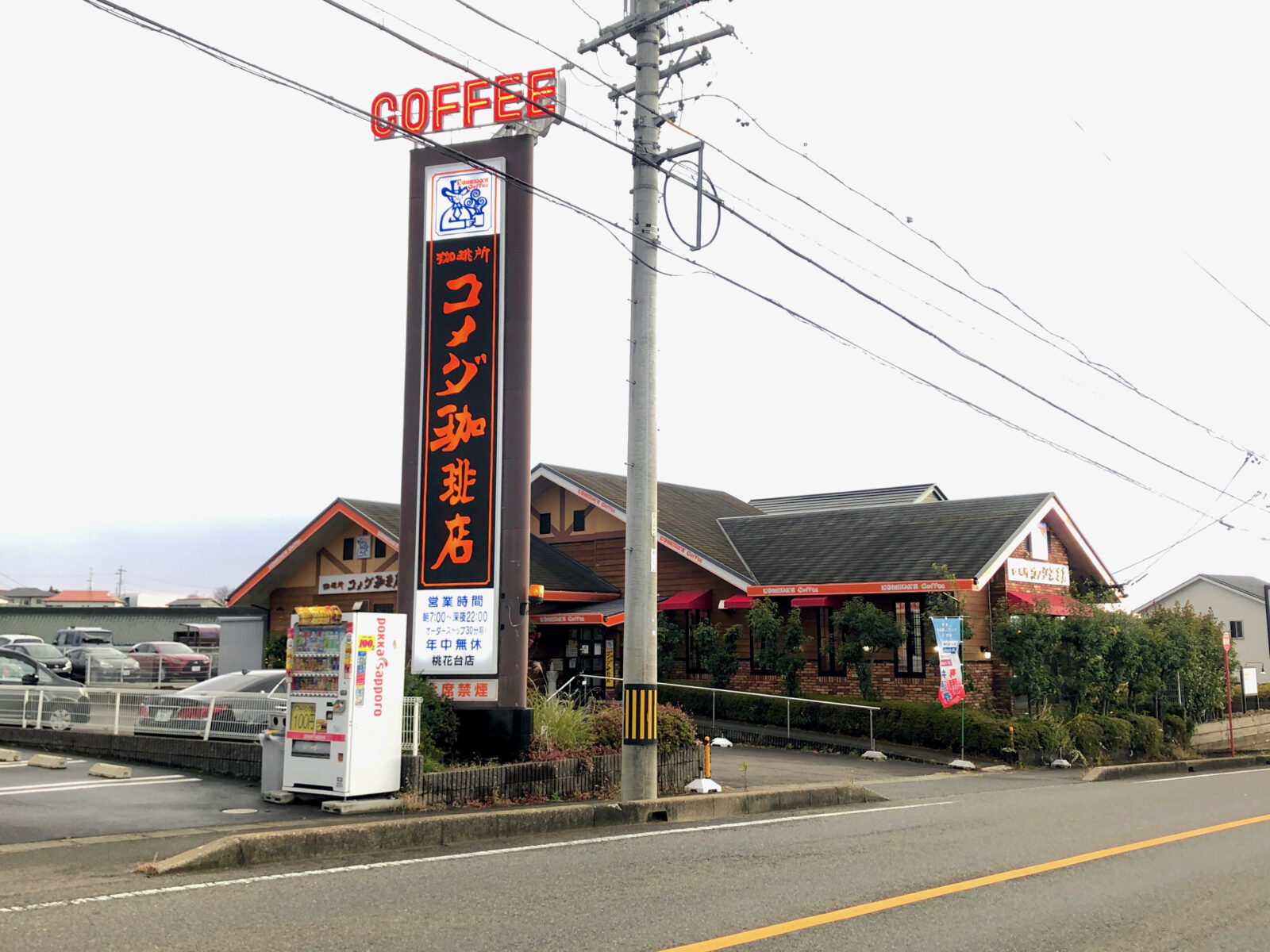
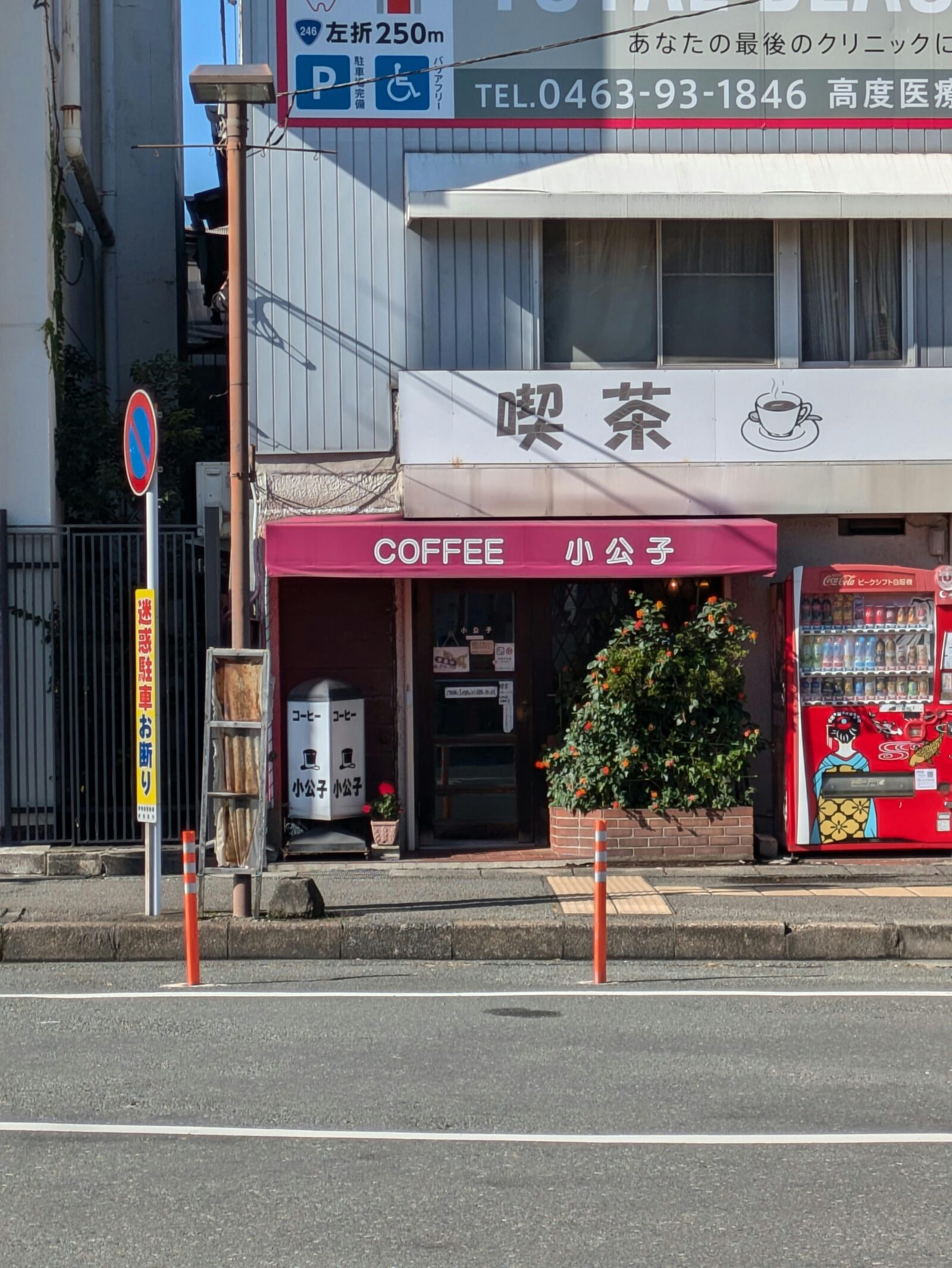
In this post, I’ll explore:
- What “morning set” is and where it started
- Its history and how it evolved
- How the culture is thriving (or changing) in Gifu now
- What I personally love about it
- Tips for visitors who want to experience it
Let’s dig in.
What Is a Morning Set (モーニングサービス)?
If you’ve ever ordered coffee in Gifu or the Tokai region early in the morning, you’ve likely been offered a free or low-cost “morning set”—usually a combination of toast, boiled egg, salad, sometimes small sides, or a little bite of something.
Here’s how it usually works:
- You go to a café in the morning (often before ~10:30 AM).
- You order coffee (or tea) at regular price.
- The café gives you a small food accompaniment—toast, a slice of cake, boiled egg, or even a mini sandwich—with no (or minimal) extra charge.
- Sometimes there are upgraded versions you can pay more for.
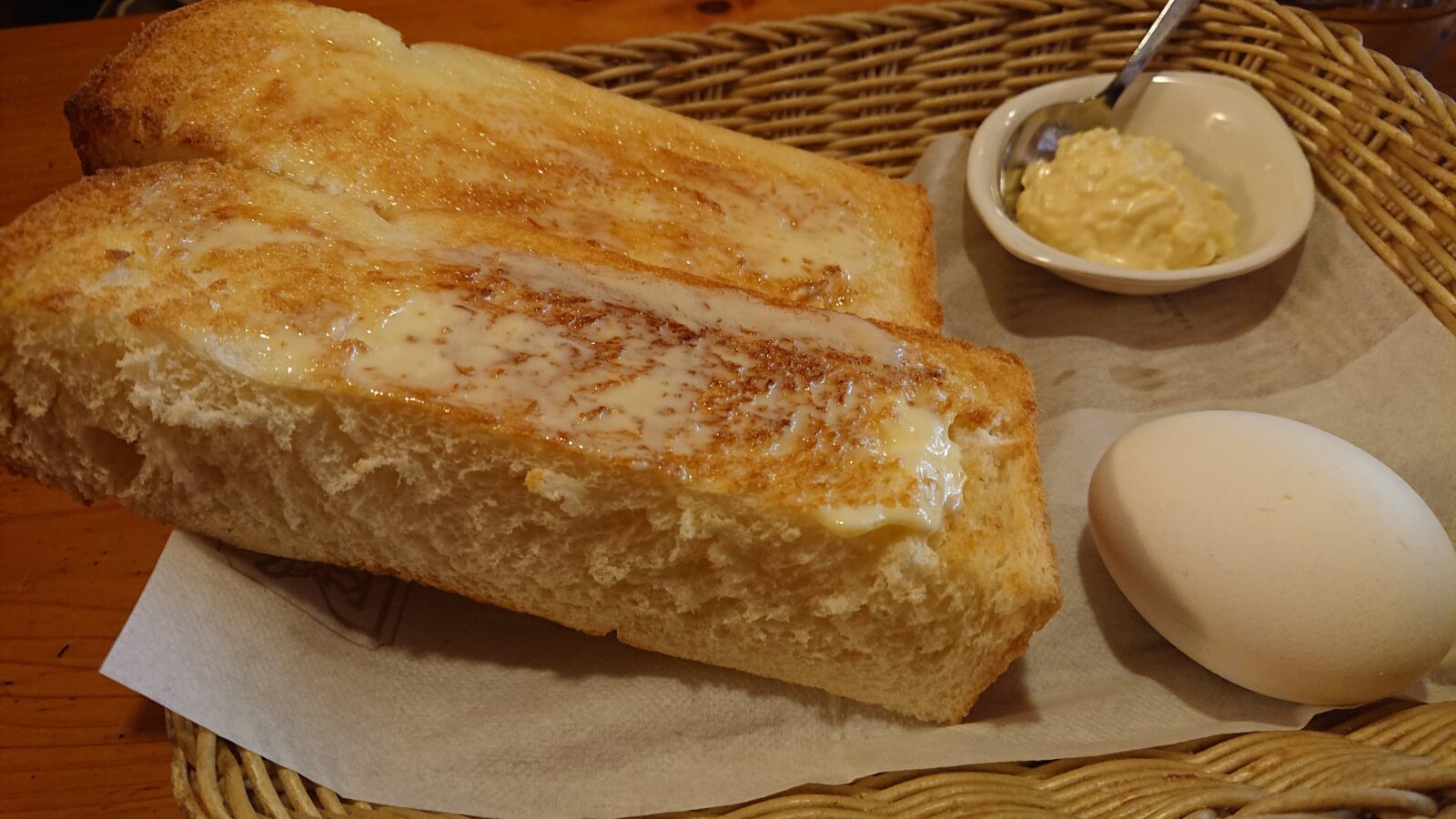
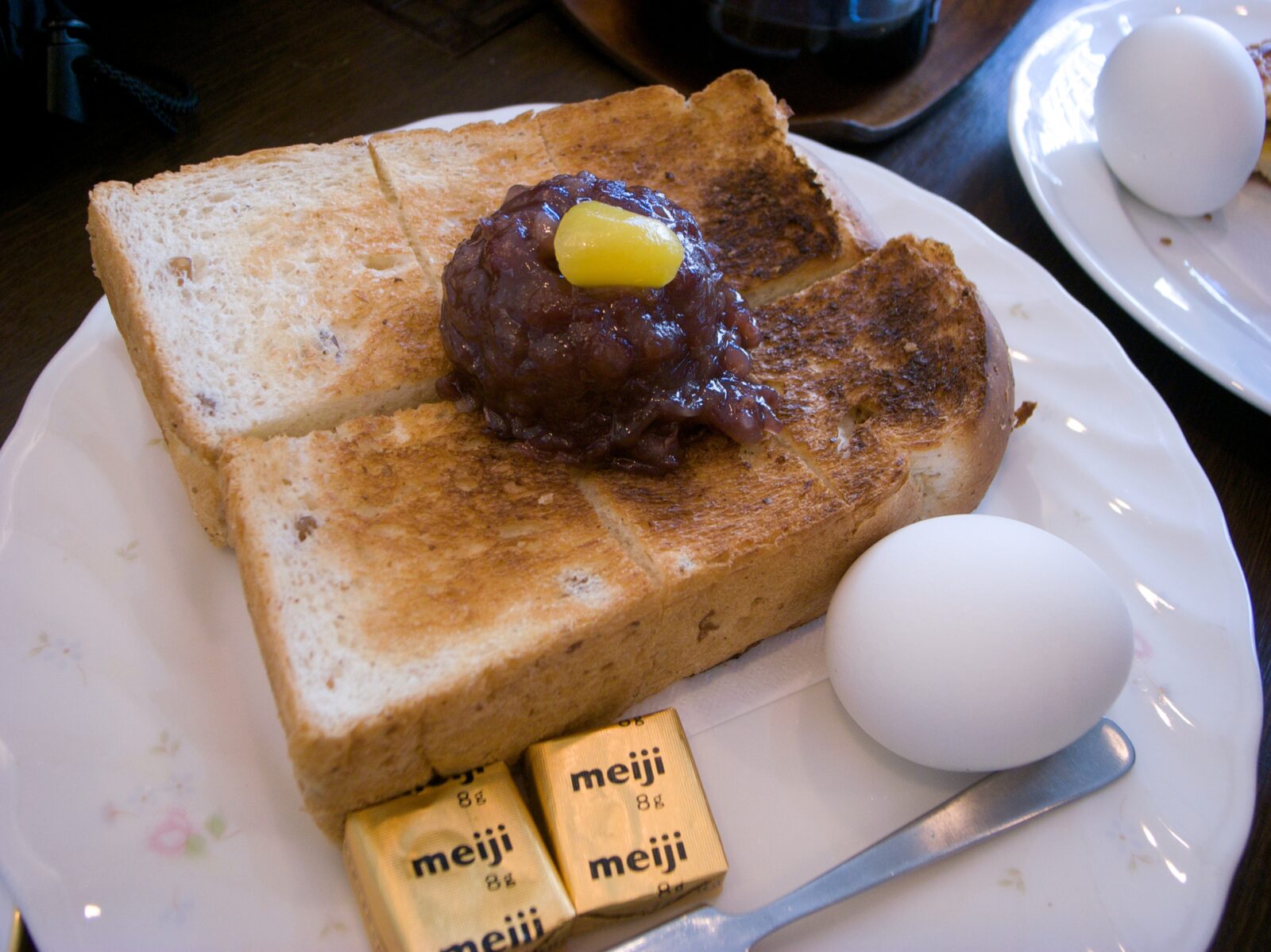
It’s a charming concept: ordering just a drink gets you a modest breakfast too, almost like a built-in “bonus.” It encourages people to linger, chat, and enjoy the morning rather than rush out.
In this region, it’s not rare or gimmicky—it’s expected in many cafés. In fact, cafés compete by offering better or more generous morning sets. I remember discovering that some places serve amazing sandwiches or small gratin dishes as part of their morning set. It’s part comfort, part café identity.
This “morning service” style is especially common in Nagoya and the surrounding region—but Gifu, being in the same general cultural area, fully embraces it. According to JapanFoodStyle’s article “Unveiling Gifu: What to expect Japan’s Unique ‘Morning Set’ Culture”, the morning culture in Tokai is more than just breakfast service—it’s a symbol of deep-rooted café culture. Japan Food Style
The Roots & Evolution of Morning Sets
Where did this idea come from? There’s no exact founding date, but several factors contributed:
1. Café boom & Showa era influences
Cafés in Japan grew significantly in the mid-20th century, especially after WWII. Western-style cafés, kissaten (traditional coffee houses), and later “coffee shop chains” began to shape coffee culture.
In that environment, cafés competed not only on coffee quality but ambience and extra touches. Offering a small side with coffee became a way to distinguish themselves and build customer loyalty.
2. Regional competition & identity
In Nagoya and surrounding areas—Aichi, Gifu, Mie—the morning set became especially popular. It’s partly because of regional rivalry: if Café A gives you toast + egg free, Café B has to match or improve. Over time, it became almost standard.
In the Tokai region, the morning set is almost expected rather than a special menu item. This is less common in parts of Japan like Tokyo, where breakfast offerings are more separated. Thus, in Gifu, the morning set also helps cement regional identity.
3. Adaptation & creativity
As cafés evolved, morning sets got more creative. Some may include small pasta gratin, mini sandwiches, or local specialties. Others include seasonal items. But in many cases, the basics—coffee + toast + egg—still survive because they’re easy, comforting, and universally appreciated.
Gifu cafés, being in a place where food culture is strong (think local ingredients, seasonal tastes), also sometimes adapt the morning set to include regional flavors or styling.
While I couldn’t locate a detailed academic history unique to Gifu, sources on Tokai’s morning set culture affirm that this kind of service has been a staple and differentiator among local cafés for decades. Japan Food Style
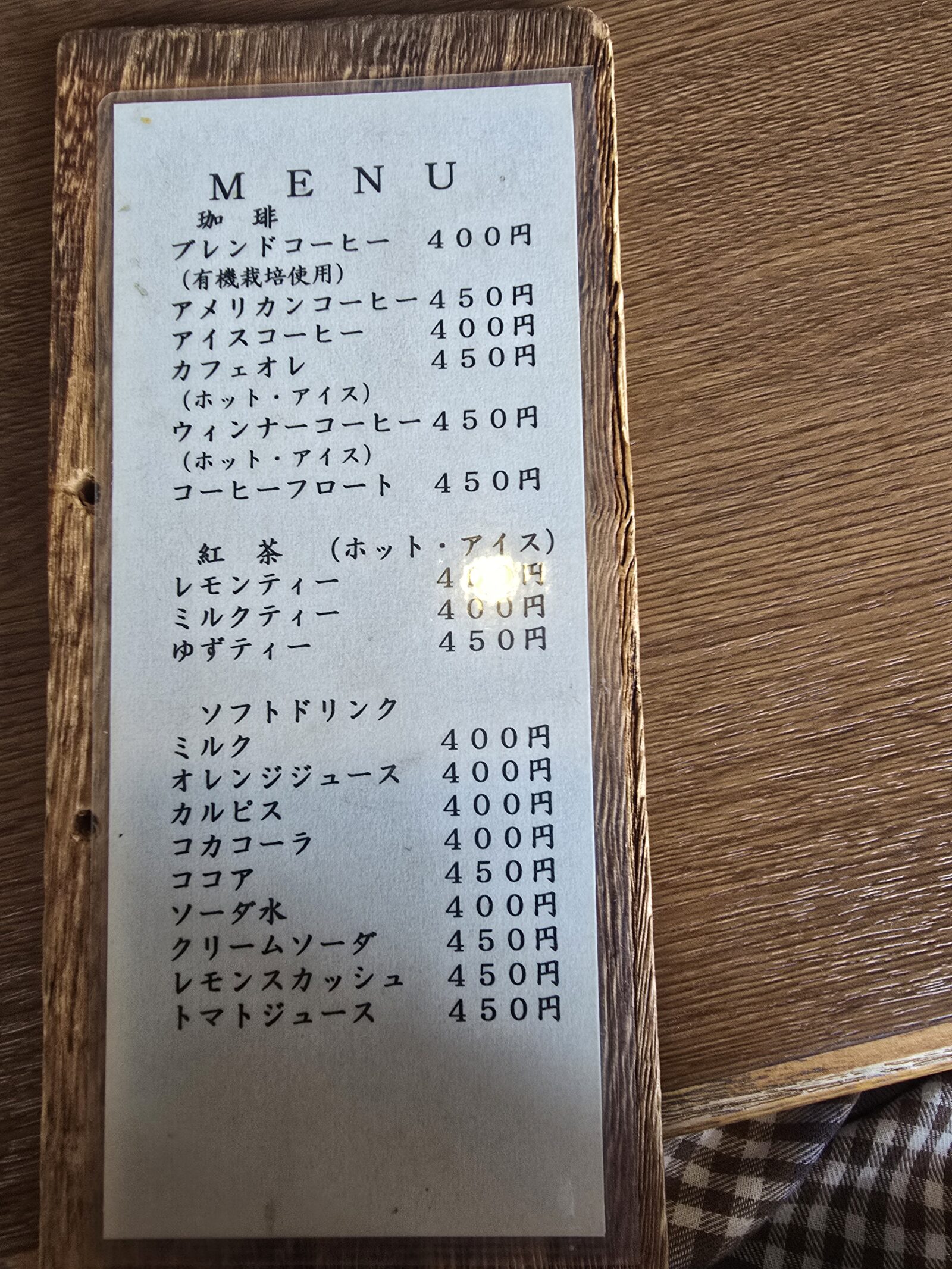
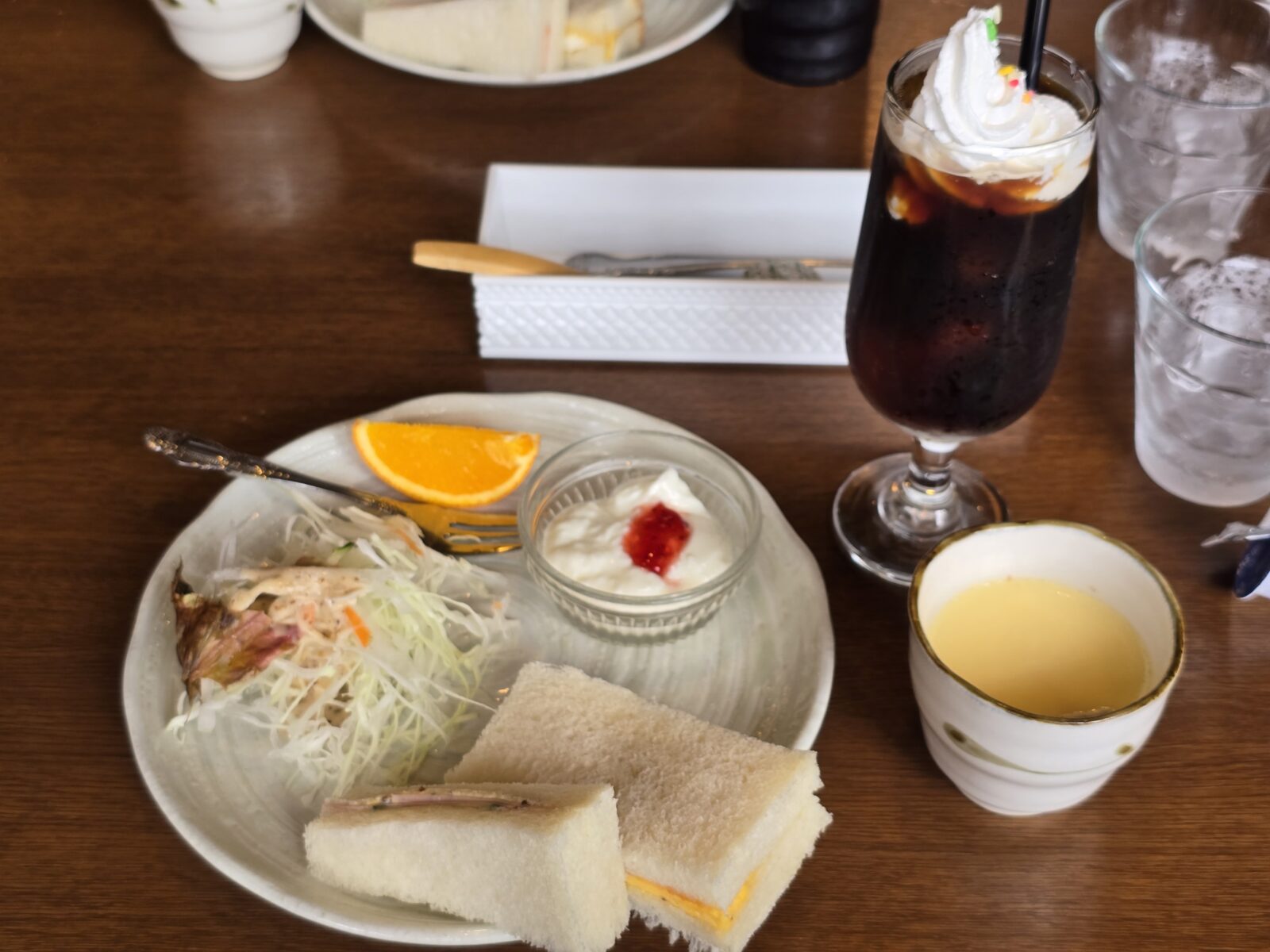
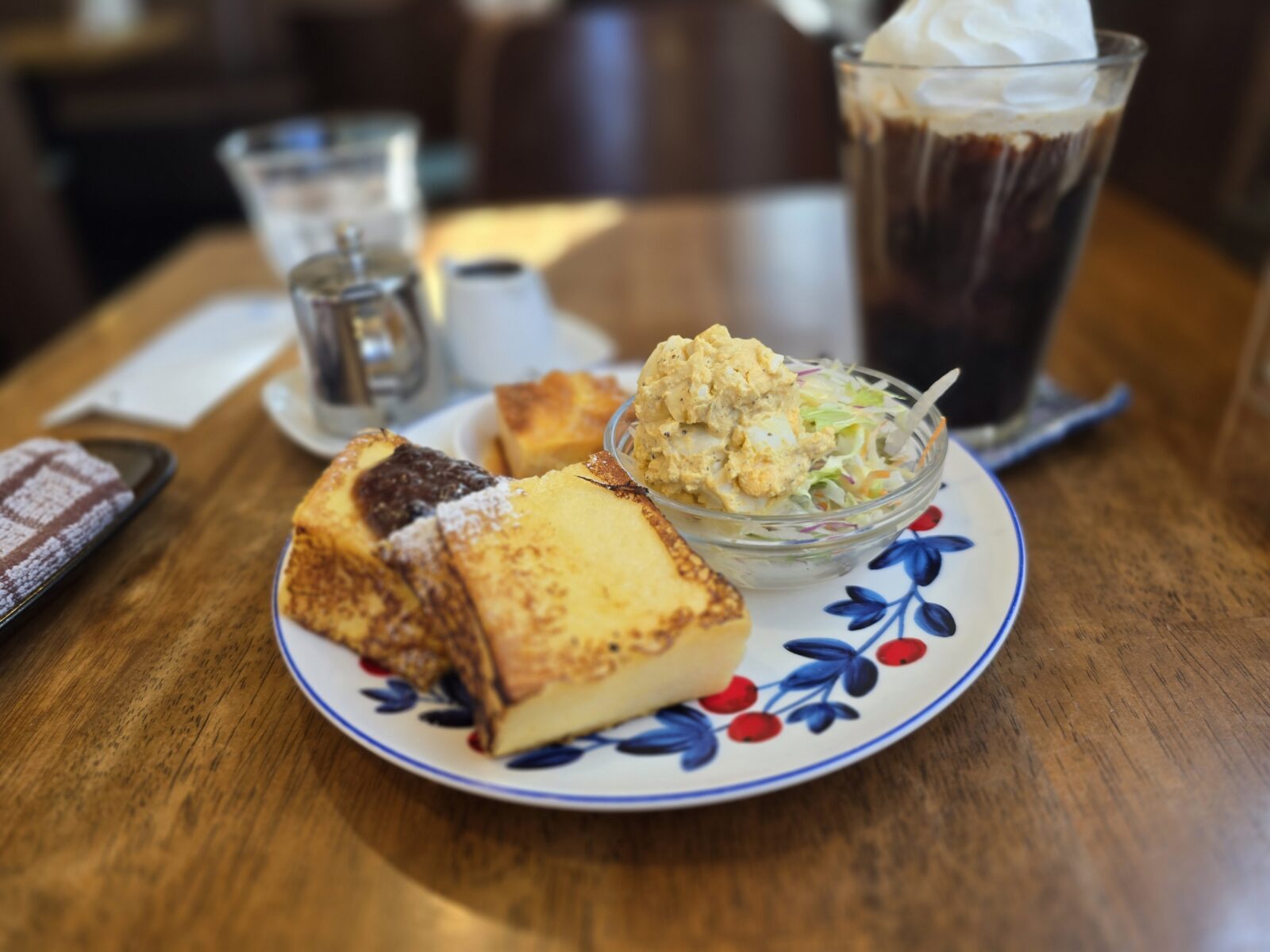
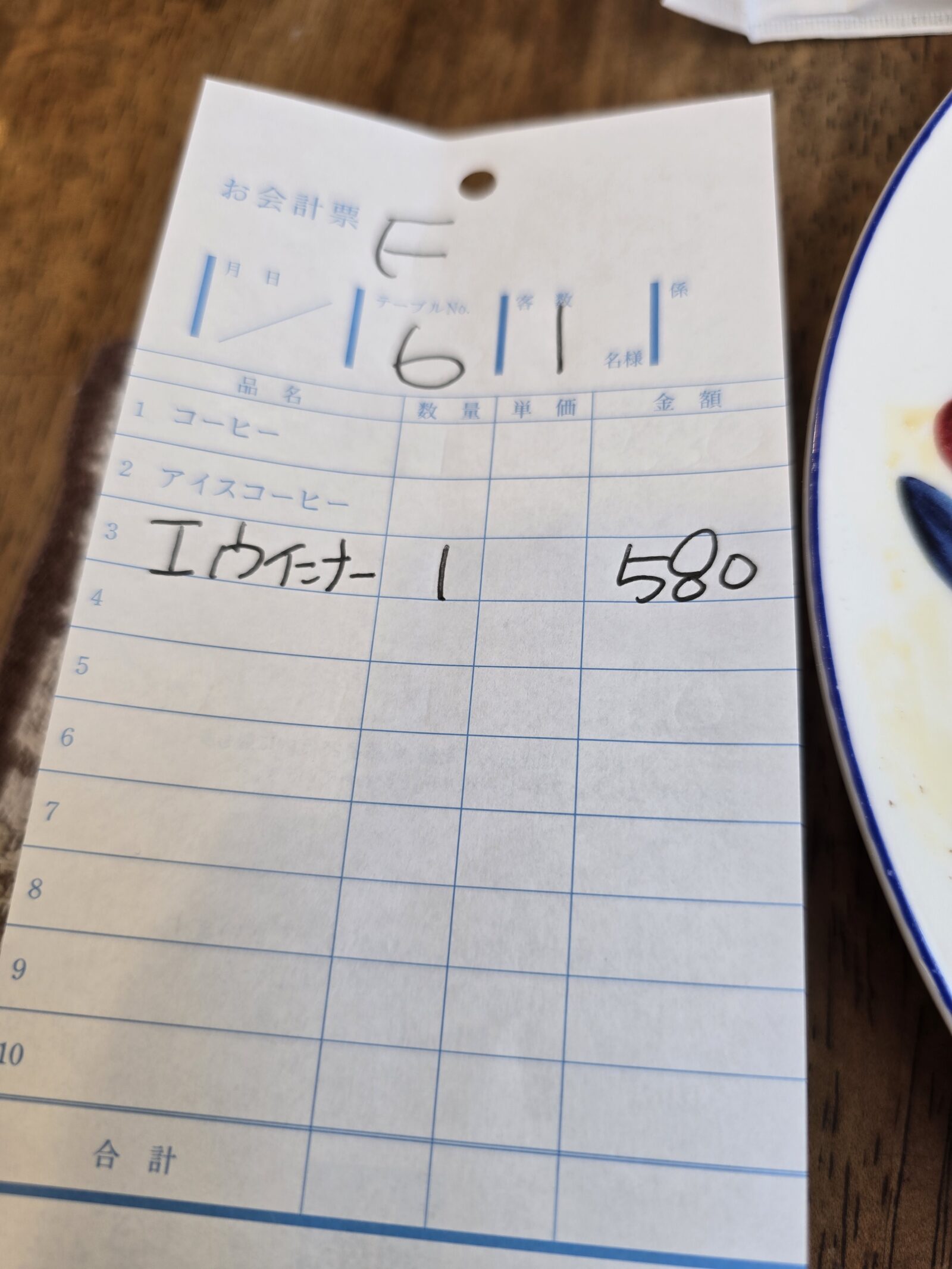
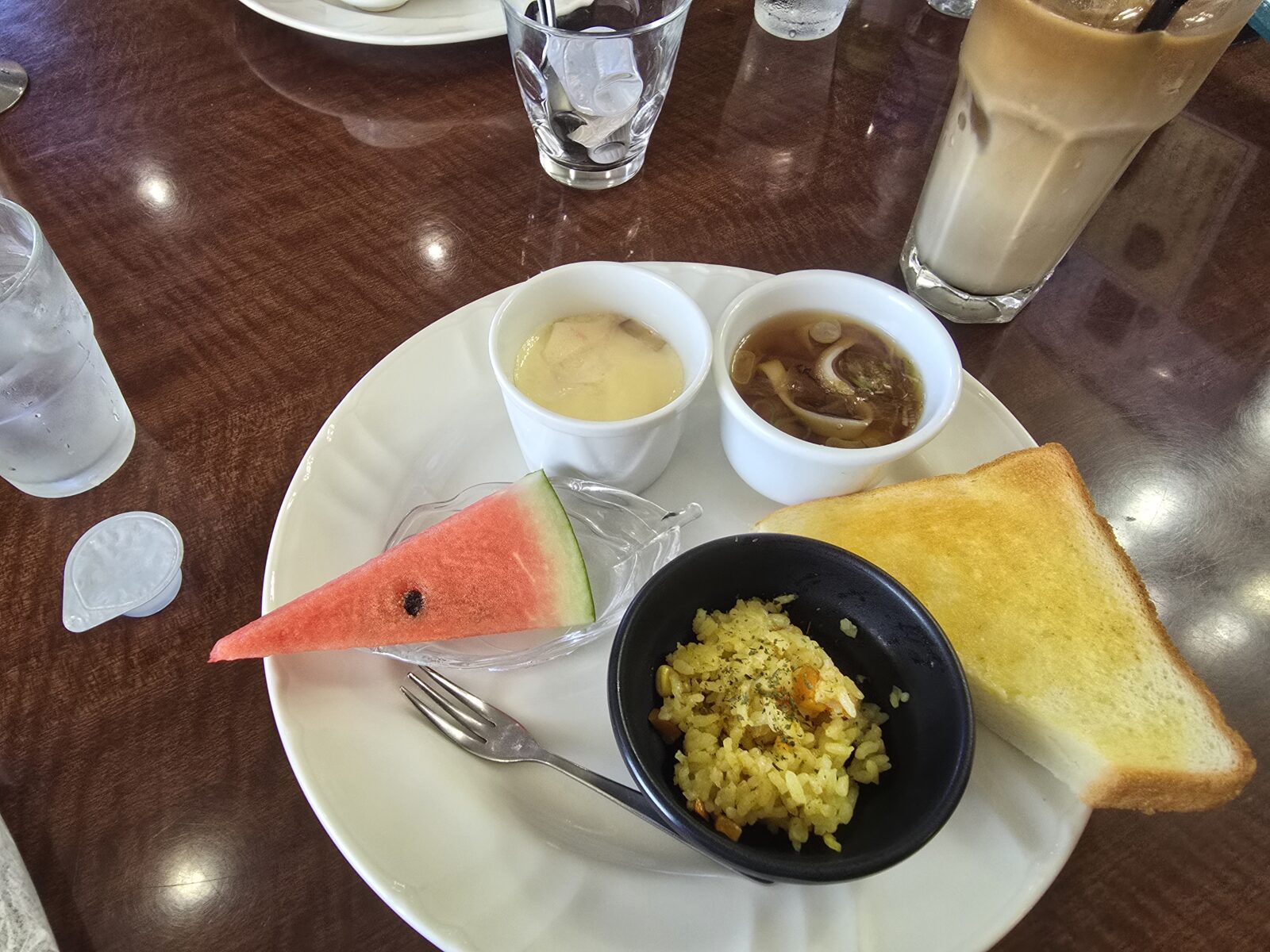
Morning Set Culture in Gifu Today
In Gifu today, the morning set is alive and well. While modern cafés and chains exist, many independent cafés still hold tight to their morning set traditions.
Here’s how I see it on the ground (in Gifu):
- Variety & choice: Some cafés stick to the classic (toast, egg, coffee), others push it with little side dishes, mini salads, or extra touches.
- Time window: Most cafés offer morning sets until 10:30 or 11:00 AM. After that, breakfast gives way to regular lunch menus.
- Local twists: Occasionally, you’ll find morning sets featuring local ingredients—perhaps a vegetable from the region, or a small side typical to Gifu cuisine.
- Ambience & ritual: Many cafés are quiet in the early morning—soft music, relaxed lighting, people reading or chatting. It feels like a gentle start to the day.
- Competition & upgrades: Some cafés try to upgrade their sets to stand out, perhaps adding a slice of cake, a little gratin, or even a mini dessert.
- Changing tastes: Younger customers sometimes prefer lighter or “Instagrammable” foods, so cafés respond with prettier plating, seasonal mini dishes, or novel items. But many older cafés still cling to the charm of “coffee + something simple.”
What I love is that in Gifu, the morning set isn’t a gimmick. It’s embraced as part of daily life. On my days off, I often sneak out early (maybe 8:30 or 9:00) and wander into a café. I’ll order a coffee, maybe some additional dish if I’m hungry, and enjoy that slow, cozy morning time. The staff rarely rush you, and I can linger over the window, watch the city wake up, feel the soft light, and soak in a moment of calm.
Why I Love It (and Why Gifu’s Sets Stand Out)
I want to highlight the parts I especially love about Gifu’s morning set culture:
- Affordability + generosity
It still feels like getting value. In a city where cost of living isn’t as high as Tokyo, a decent coffee plus a filling morning set often won’t break the bank. I love that cafés try to be generous—sometimes a little salad, or a side you didn’t expect. - Slow starts
On a day off, I don’t want to rush. Having a ritual of “go get morning set” gives me purpose without urgency. I stroll, choose a café, and settle in. It feels deliberate. - Connection to place
When a café includes a local ingredient, or presents something in a style unique to Gifu, it connects me more deeply with the region. It’s not just “a breakfast everywhere”—it’s “breakfast in Gifu.” - Café character
I often pick cafés with style: cozy corners, natural light, bookshelves, soft music. The morning set gives me a reason to inhabit those spaces. The cafés that take this seriously usually have good coffee too—so the combination is special. - People-watching & city life
Early mornings are quiet, but people still come by. Locals heading to work, older couples out for a walk, small groups chatting. It feels like the city breathing awake. - Rhythms & memories
After doing this for some time, I’ve started recognizing regular customers, café staff greetings, seasonal décor changes. There’s comfort in that continuity.
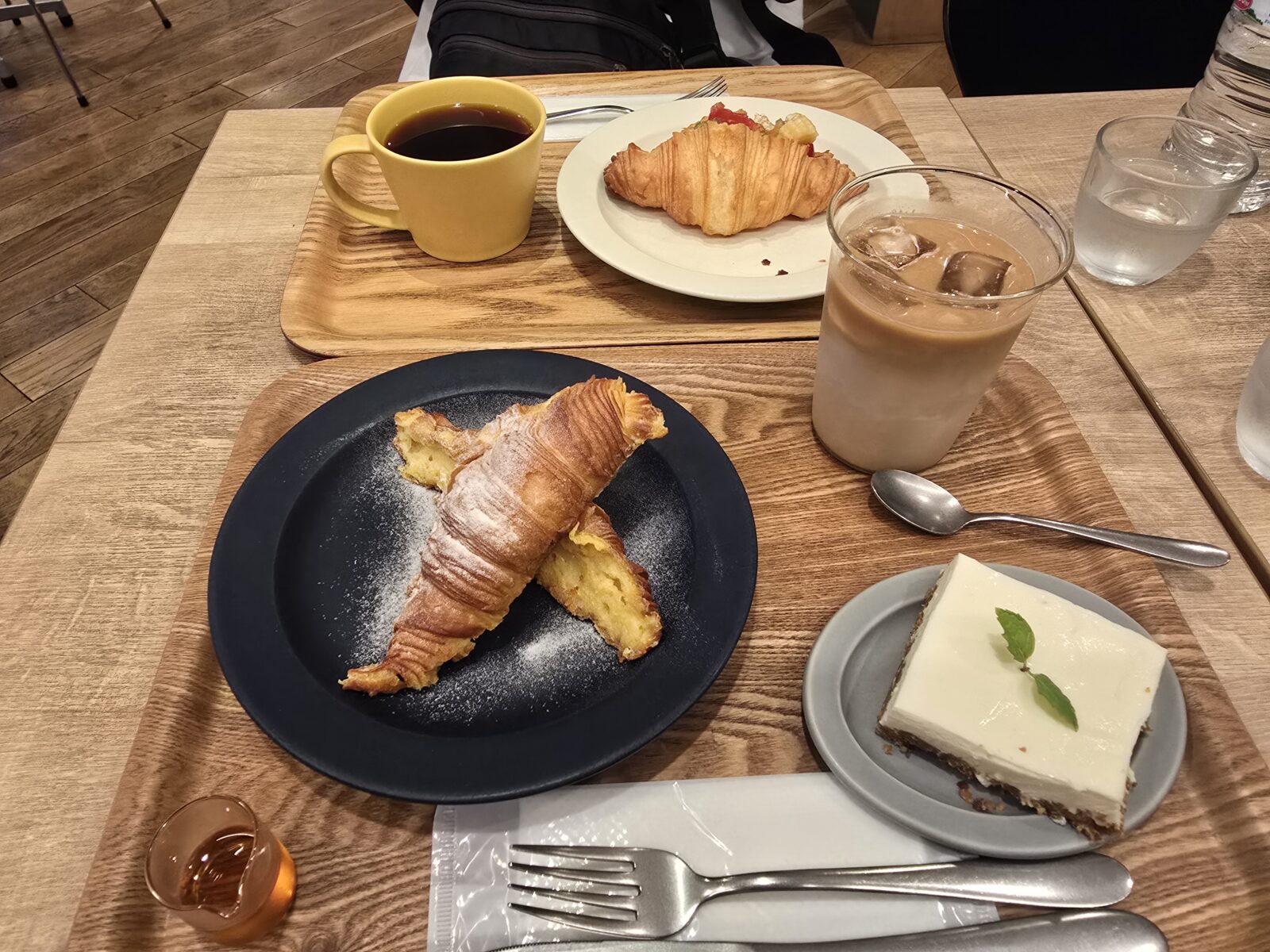
Tips for Tourists: How to Enjoy a Morning Set in Gifu
If you’re visiting Gifu and want to experience the morning set culture, here are tips to get the most out of it:
- Go early: Aim for 7:30–10:30 AM. That’s when the full morning sets are available.
- Explore local cafés: Don’t always go to big chains. Walk around near neighborhoods or near Gifu Castle, or the quieter side streets.
- Order coffee first: Often the set is tied to your drink, so order your coffee or tea and see what comes with it.
- Ask about extras: Some places let you add on special items (mini gratin, extra sides) for a small fee.
- Check menus visually: Many cafés display pictures of the morning set—use that to decide what looks appealing.
- Observe the locals: See what locals order or stick to—it can clue you in to hidden favorites.
- Enjoy the quiet time: Use the moment to write, read, sketch, or just watch the world gradually start moving.
- Respect café culture: Don’t overstay at busy cafés during peak lunch prep times. Be polite and enjoy the vibe.
- Weekends get busy: Some cafés open later or have longer waits on Saturday/Sunday mornings.
- Cash is king: Many local cafés only accept cash, especially the traditional ones that keep their prices low. Always bring some yen coins and bills with you. Chain cafés (like Komeda or Starbucks) usually accept credit cards or IC cards, but the hidden gems in Gifu often don’t.
- Mix styles: Try both classic spots (toast + egg) and creative ones (like おにぎりモーニング or cake with your set).
- Soak in the atmosphere: Part of the charm is watching locals—retirees reading the paper, friends chatting, or office workers taking a calm start to their day.
Challenges & Changes
Of course, nothing stays constant forever. The morning set culture faces a few pressures:
- Rising costs: Ingredients, rent, staff. Some cafés may scale back offerings or adjust pricing.
- Changing tastes: Younger generations might prefer lighter or more trendy breakfasts (e.g. smoothie bowls, avocado toast).
- Chain cafés: Big café chains (Starbucks, etc.) may not offer comparable morning sets, which can affect competition.
- Urban development: As city centers modernize, cafés may be replaced or shift style.
- Work culture: More people commuting earlier or schedules shifting might shrink the window where people can enjoy a slow morning set.
Despite that, I feel morning sets are resilient here—they tap into something deeply human: wanting comfort, ritual, and connection in the early hours.
Morning set culture in Gifu is one of those everyday things that feels like magic once you slow down long enough to notice. It’s a tradition, but also a living, breathing part of daily life. It’s comforting, unpretentious, and rooted in community.
When I take those morning strolls, order a coffee, and settle into a café, I feel part of the rhythm of Gifu. I feel tied to place. And mostly, I feel gratitude for small pleasures—a warm drink, a simple meal, quiet light, and time.
If you ever visit here, wake up early. Hunt down a café that offers a morning set. Order that coffee. Let the morning unfold around you. And maybe, you’ll fall in love with Gifu exactly the way I have.
